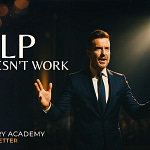It’s a curious feature of wealth that the more of it you have, the less you seem to do for yourself. Ordinary mortals buy their own train tickets; billionaires outsource the task to someone else entirely.
Which is why selling to the ultra-wealthy is less about pitching to the “principal” than it is about navigating an ecosystem of gatekeepers.
One client told me their assistant once binned a sales proposal because they disliked the salesperson’s tone. The principal never saw it.
Another jeweller thought they’d sold a necklace worth the GDP of a small republic, only to have the deal scuppered by the daughter’s whispered veto: “vulgar.”
And, in one of my favourites, a chauffeur’s opinion over coffee made the difference between closing a contract and walking away empty-handed. Thirty years of loyalty trump a PowerPoint deck every time.
The mistake most people make is thinking it’s an either/or problem. Do I charm the patriarch, or the PA?
The answer, of course, is both, and everyone else who happens to orbit the fortune. Because families with money are less like monarchies and more like Greek myths: pawns become queens, cousins become CFOs, the king is asleep in the corner. The cast reshuffles daily.
Which is why the smartest salespeople don’t just sell to an individual. They sell to the system.
They watch the glances, the silences, the corridor chats after the meeting. Because the meeting room is theatre; the real decision is made in the car on the way home.
And if you forget that, you might just find your proposal quietly strangled, not by the principal, but by the person you thought didn’t matter.











